Review of Lives of Others, The
Introduction
It`s 1984 in the German Democratic Republic, or East Germany to the majority of people. Hauptmann Gerd Wiesler (Ulrich Mühe) is a zealous agent of the Stasi, the East German security agency. An expert in interrogation and surveillance, Wiesler is asked by his superior Oberstleutnant Anton Grubitz (Ulrich Tukur) to spy on golden couple Georg Dreyman and Christa-Maria Sieland under the instructions of Minister Bruno Hempf (Thomas Thieme).
Dreyman (Sebastian Koch) is a famous playwright , an artist but also a party man. He is comfortable within the guidelines imposed by the ruling party but also tries to use his position to help others who have fallen foul of this oppressive system. Sieland is one of the most famous of East German actresses and sometimes appears in the plays put on by Dreyman. There`s an element of jealousy and personal gain in the assignment, but the ever ambitious Grubitz doesn`t care. Wiesler, ever the obedient subordinate, also doesn`t care and the massive state machinery of the Stasi swings into action. The Stasi had around 100,000 employees and, quite incredibly, a network of both willing and unwilling informers of around 175,000 from a population of about 16 million. This operation was nothing special, other than the lift up that it might give to Grubitz, and so the reports compiled during Operation `Laslo` would join the 100km of files compiled during this feared organisation`s reign of terror.
After overseeing the complete bugging of Dreyman`s apartment, Wiesler installs himself in the bare loft of the building to listen in to every word during a 12 hour shift. At first Wiesler is the staunch state employee who lives purely for his work, making notes on everything and being the diligent drone. He is also a master tactician as well as surveillance expert, engineering it so that Dreyman realises what is going on during one of Sieland`s liaisons with Hempf.
Slowly though, things begin to change. The turning point is the suicide of one of Dreyman`s closest friends, the disgraced theatre director Albert Jerska (Volkmar Kleinert). As Dreyman and Sieland try to cope with the news of his death, Dreyman plays Sonata For A Good Man, a piece of music given to him for his birthday by Jerska. Wiesler doesn`t want the interruption of the music, but has to continue listening through his headphones and therefore inadvertently lets it in. Crying with an understanding that not everything is so lifeless and cold, Wiesler feels his perspective slowly changing and finds himself living through the world of Dreyman and Sieland, changing his reports so that nothing untoward is reported back to his superior Grubitz. This doesn`t please Grubitz, who sees his next promotion ebbing away, and things take a decidedly uncomfortable turn after an article is published in West German newspaper Der Spiegel about suicide rates in the GDR…
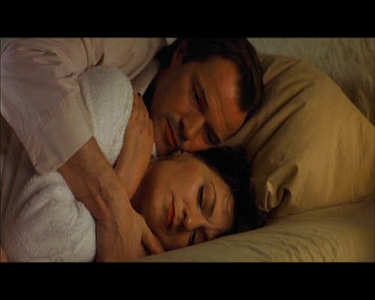
Video
The picture is grey, stark and cold for the majority of the time, reminding us of the oppression of the totalitarian East German state. The only place of warmth is within Dreyman`s apartment.
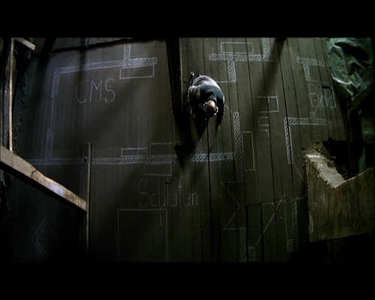
Audio
Good soundtrack that makes good use of the surrounds. Film is subtitled in English. A stirring soundtrack from Gabriel Yared gives this rather mundane story the sense of the thriller it is, albeit not in the conventional sense of the word.
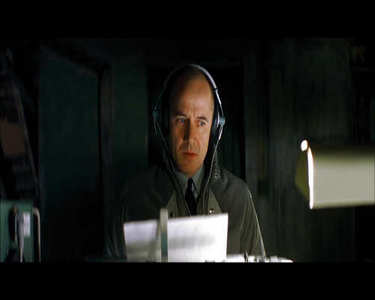
Features
Extended/Deleted Scenes - comes with or without Director`s commentary
Cast/Crew interviews - interviews with all the major players in this production, it`s a decent length and covers the important ground (i.e it`s not a love-in…)
Making Of - Not bad documentary on the making of this quite important film, some of the cast/crew interviews are repeated, but not in entirety thankfully.
Stasi Gallery - A brief look at some of the equipment used by the Stasi.
Commentary - Florian Henckel von Donnersmarck provides plenty of detail during this yak track, one of the surprising things being his relative inexperience as a director and the fact that his actors are all quite big names in Germany. Von Donnersmarck admits that Ulrich Mühe interviewed him before agreeing to take the role due to his apprehension at his director`s ability to translate screenplay to film.
My copy also came in a commemorative tin, but I think this may have been an HMV exclusive as I`ve not seen it since.
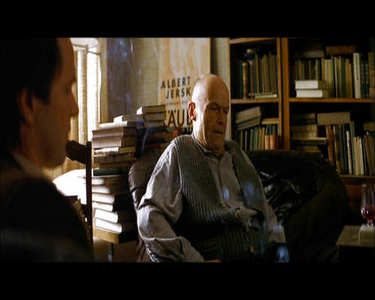
Conclusion
Few foreign films make much of an impression, but two from Germany in the last couple of years have done precisely that. Der Untergang (Downfall) was the first with a mesmerising performance from Bruno Ganz, which unbelievably lost out on the Oscar, and now we have Das Leben Der Anderen (The Lives Of Others) which actually won the Oscar for Best Foreign Film this year. It clearly helps that the film is full of top rated German actors, most of whom will be unfamiliar to the majority of viewers, but the story and the era have clearly made an impression. There have been many stories crafted about the Iron Curtain and events just behind the Berlin Wall, but never from the East German perspective and about what is ultimately quite a mundane matter driven by base emotions.
The East German authorities never really knew what to do with their intellectual crowd artists, actors, writers, etc. And so the Stasi (the Governemt secret service) would often mount huge life spanning surveillance operations on them, inverting the Western stance of innocent until proven guilty. Huge files would build on these people in the hope that the Stasi might just find something that proved that they were acting against the best interests of the State. What is clear from this film though, is that some of these operations were only performed under the pretence of the best interests of the State, some (maybe most) were driven by a jealousy of what the subject had in his life, in this case his girlfriend.
Ulrich Mühe, now sadly departed after dying earlier this year, is quite fantastic as the ultimate grey man in Wiesler, a man that no one notices normally but has the power of life and death at his fingertips. His life is empty and he lives for and through his work, never questioning the legitimacy of the State paranoia that he is part of until this latest assignment. Expressionless throughout, the change that slowly comes over Wiesler is extremely subtle but once he takes that first step, he becomes Dreyman`s secret Guardian Angel. Sebastian Koch, also in Paul Verhoeven`s superb Black Book last year, also undergoes a transformation in moving from compliant artist to rebel upon the death of his friend, caused by his blacklisting by the State authorities.
The two central characters never meet, sharing a couple of scenes very briefly but never acknowledging each other; Mühe because he is the invisible arm of the State apparatus, Koch because he is simply unaware of the other man and his direct influence on his life. What is more amazing about this scenario is that Mühe was himself the subject of Stasi surveillance, a surveillance so intricate that his ex-wife and mother to his daughter was a Stasi informant, although she denied this fact up until her death last year. Mühe read his Stasi file and knew the identity of two of four listed informants within, which included his wife (although who knows whether everything written in those files is true…). To take on the role of one of the faceless drones who spied on him took some courage and it`s to his credit that he puts in a truly magnificent performance.
I don`t want to say too much about the plot itself, other than to say the climax of the main plot is superb and the film ending itself is so simple and yet so breathtakingly beautiful. I can`t think of a better ending or a more mundane yet poetic and meaningful final line.
Superb and a fitting epitaph for Ulrich Mühe.
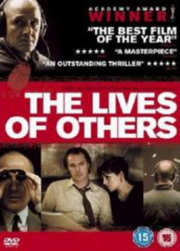




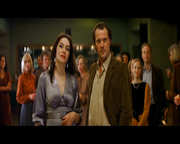
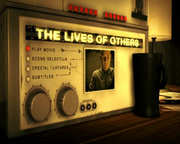
































Your Opinions and Comments
Be the first to post a comment!